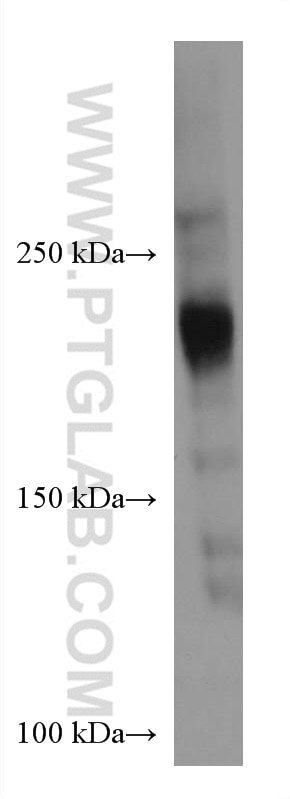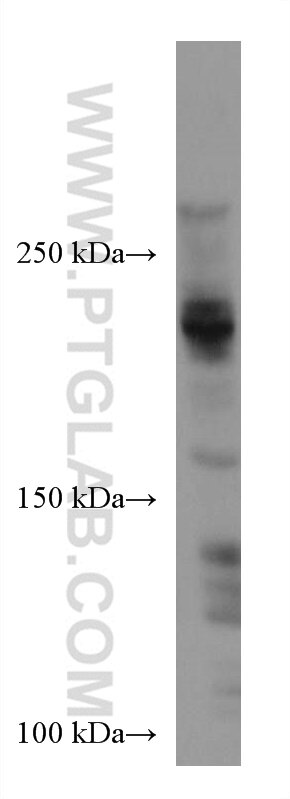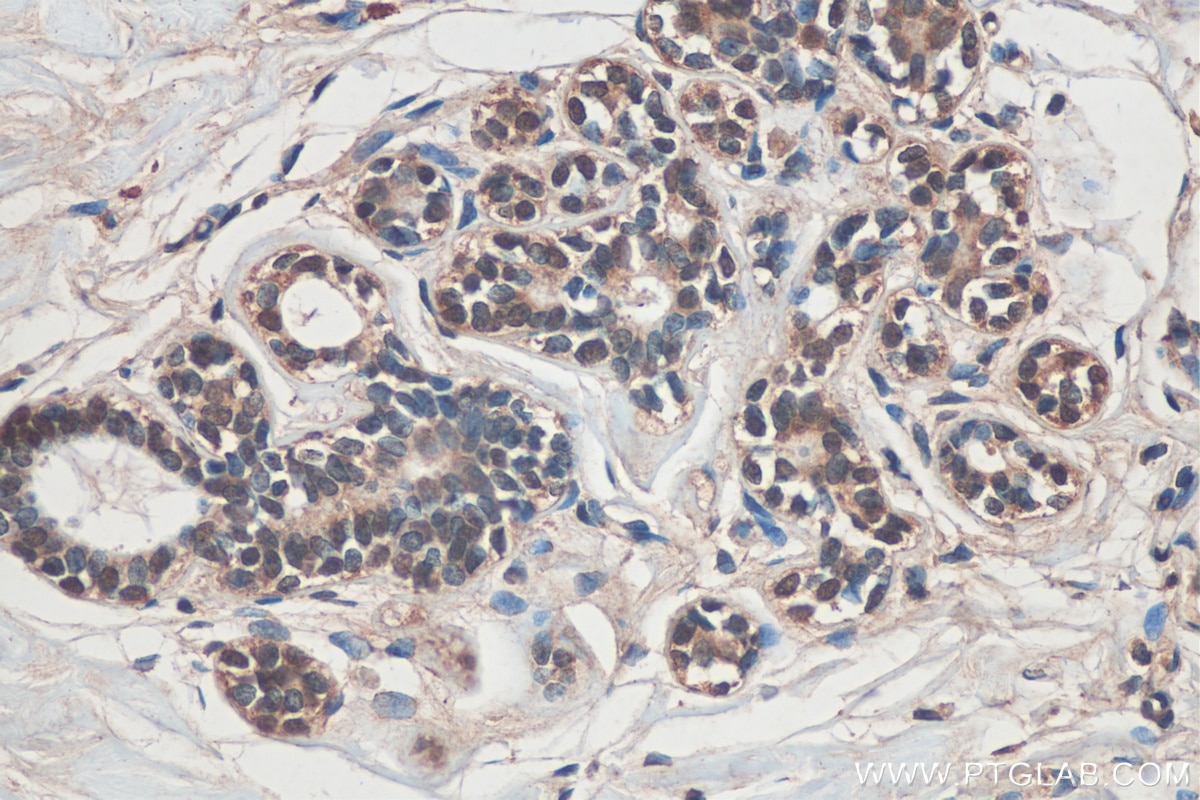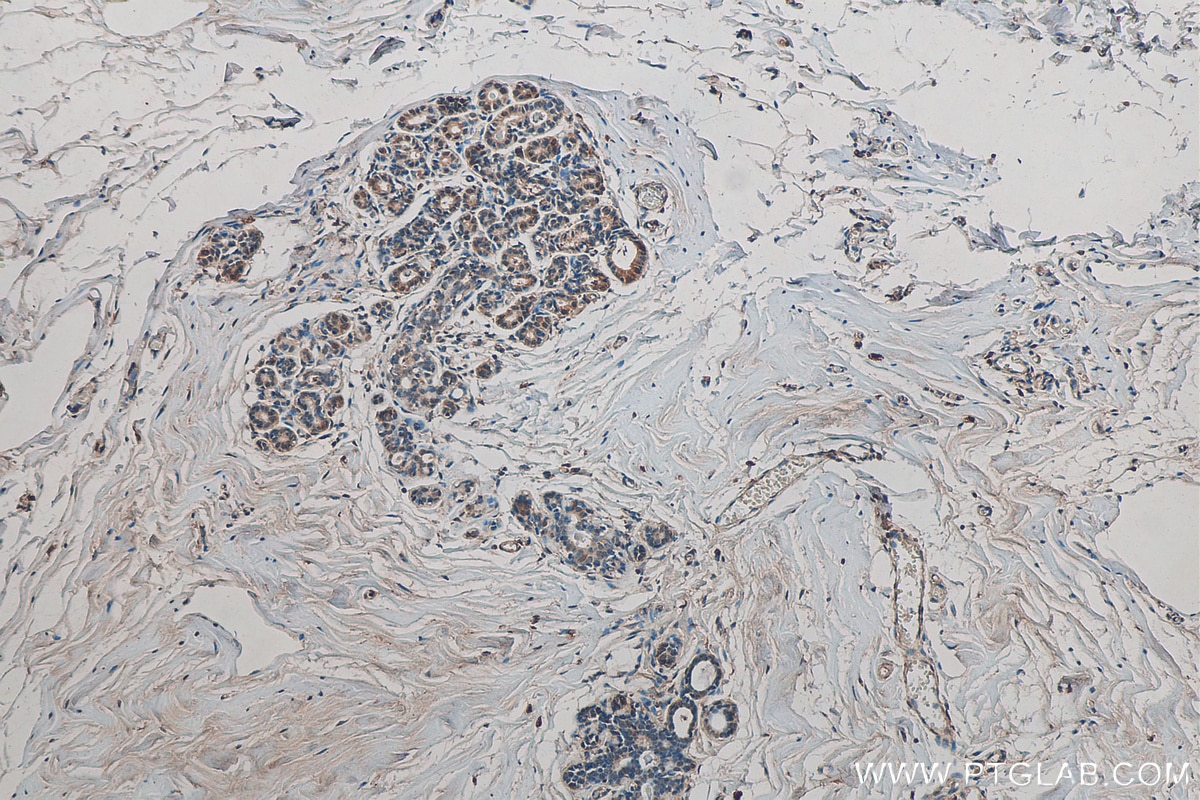Validation Data Gallery
Tested Applications
| Positive WB detected in | T-47D cells, MDA-MB-231 cells |
Recommended dilution
| Application | Dilution |
|---|---|
| Western Blot (WB) | WB : 1:5000-1:50000 |
| It is recommended that this reagent should be titrated in each testing system to obtain optimal results. | |
| Sample-dependent, Check data in validation data gallery. | |
Product Information
67384-1-Ig targets ARID4B in WB, ELISA applications and shows reactivity with Human samples.
| Tested Reactivity | Human |
| Host / Isotype | Mouse / IgG1 |
| Class | Monoclonal |
| Type | Antibody |
| Immunogen | ARID4B fusion protein Ag21485 相同性解析による交差性が予測される生物種 |
| Full Name | AT rich interactive domain 4B (RBP1-like) |
| Calculated molecular weight | 1312 aa, 148 kDa |
| GenBank accession number | BC130418 |
| Gene Symbol | ARID4B |
| Gene ID (NCBI) | 51742 |
| RRID | AB_2918489 |
| Conjugate | Unconjugated |
| Form | Liquid |
| Purification Method | Protein G purification |
| UNIPROT ID | Q4LE39 |
| Storage Buffer | PBS with 0.02% sodium azide and 50% glycerol , pH 7.3 |
| Storage Conditions | Store at -20°C. Aliquoting is unnecessary for -20oC storage. |
Background Information
ARID4B, also named as BRCAA1 or SAP180, is a 1312 amino acid protein, which contains one ARID domain. ARID4B localizes in the nucleus and cytoplasm. ARID4B as a transcription repressor may function in the assembly and/or enzymatic activity of the Sin3A corepressor complex or in mediating interactions between the complex and other regulatory complexes. ARID4B is highly expressed in the testis and in breast, lung, colon, pancreatic and ovarian cancers. Expressed at low levels in the thymus, prostate and ovary.
Protocols
| Product Specific Protocols | |
|---|---|
| WB protocol for ARID4B antibody 67384-1-Ig | Download protocol |
| IHC protocol for ARID4B antibody 67384-1-Ig | Download protocol |
| Standard Protocols | |
|---|---|
| Click here to view our Standard Protocols |



